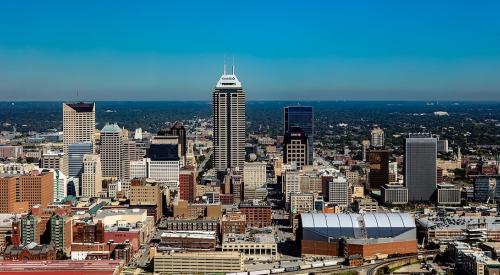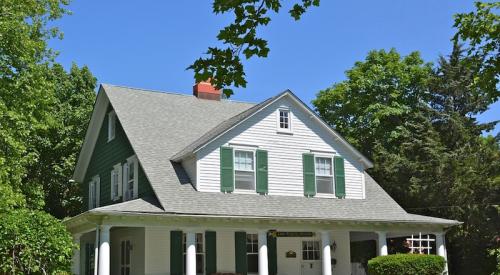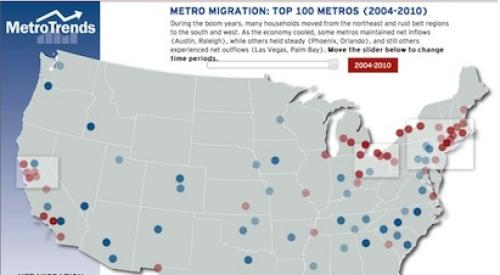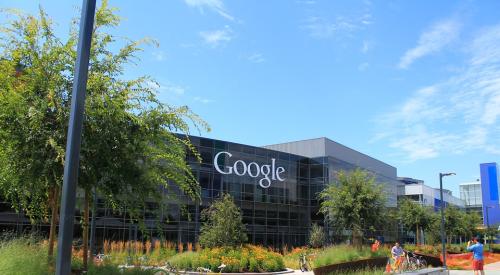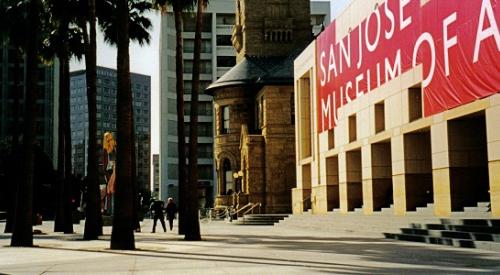Recessions do not affect every city in the United States equally. While some cities are able to weather the storm relatively efficiently, other cities tend to have a more difficult time in keeping their residents' heads above water. As CityLab reports, in an effort to help quantify and visualize this, a study in the Journal of Urban Economics took a look at the uneven effects of the past several business cycles, including the Great Recession, on America’s metros. The study tracks monthly economic activity for the nation’s 50 largest metros over the course of several recessions between 1990 and 2015. The effects these recessions had on economic output, productivity, wages, and unemployment was then charted.
While recessions themselves are unique in both strength and cause, the study found that, regardless of which recession was being looked at, Rustbelt cities like Detroit and Sunbelt cities such as Las Vegas or Miami were consistently hit hard. Manufacturing-oriented Rustbelt cities and tourism-based Sunbelt cities are the most vulnerable to a recession, regardless of how large the recession is or what ultimately caused it.
Meanwhile, economies that are built more on knowledge and talent offer the best protection against recessions. Think of economies in tech-centric cities such as San Jose, San Francisco, Austin, and Seattle. However, these cities can still feel the effects if the tech economy becomes overheated. For example, San Jose was hit very hard when the tech bubble burst in 2001.
For a full analysis of the study and to view accompanying infographics and charts, click the link below.

